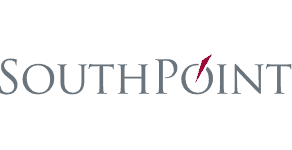 https://www.thinksouthpoint.com/wp-content/uploads/2023/10/Workers-at-manufacturing-facility.jpg
1250
2000
Abstrakt Marketing Administrator
/wp-content/uploads/2021/04/southpoint_logo_f.png
Abstrakt Marketing Administrator2023-10-31 09:00:002025-04-23 15:33:28The Role of E&O Insurance in Managing Supply Chain Risks
https://www.thinksouthpoint.com/wp-content/uploads/2023/10/Workers-at-manufacturing-facility.jpg
1250
2000
Abstrakt Marketing Administrator
/wp-content/uploads/2021/04/southpoint_logo_f.png
Abstrakt Marketing Administrator2023-10-31 09:00:002025-04-23 15:33:28The Role of E&O Insurance in Managing Supply Chain RisksBreaking Down Commercial Insurance Claims
As a business owner, protecting your company from financial losses is crucial. Commercial insurance claims can be complex and overwhelming, but understanding the basics can make a big difference. In this blog, we’ll break down the different types of commercial insurance claims, explain the claim process from start to finish, and provide tips for a successful claim. Let’s explore commercial insurance claims together!
The Basics of Business Insurance Claims
Commercial insurance claims play a vital role in safeguarding businesses from unexpected risks and liabilities. When unfortunate incidents occur, commercial insurance policies provide financial protection. It’s important to note that commercial insurance claims differ from personal insurance claims because they specifically cater to businesses and their assets.
According to recent data from the National Association of Insurance Commissioners, over 40% of small businesses have filed an insurance claim in the last ten years. This highlights the importance of understanding commercial insurance claims and the process involved.
What Are the Most Common Types of Commercial Insurance Claims?
Commercial insurance claims encompass various types, each addressing specific risks faced by businesses. Here are some of the most common types:
Property Damage Claims
Commercial property damage claims are among the most common types of commercial insurance claims. They cover damage to a business’s physical property caused by events such as fire, storms, vandalism, or theft. Property insurance plays a crucial role in protecting a business’s assets, including buildings, equipment, inventory, and furniture. Additionally, business theft insurance specifically guards against theft and burglary, providing coverage for stolen goods and property damage resulting from break-ins.
Liability Claims
Liability claims arise when a business is held responsible for causing harm to another person or entity. General liability insurance is a fundamental coverage for businesses, as it provides protection against bodily injury or property damage claims filed by third parties. For example, if a customer slips and falls in your store and sustains an injury, liability insurance can cover their medical expenses and any resulting legal claims. It also provides financial support for legal defense and any damages awarded, up to the policy limits.
Workers’ Compensation Claims
Workers’ compensation insurance is mandatory in most states and provides coverage for employees who suffer job-related injuries or illnesses. When an employee is injured on the job, workers’ compensation steps in to cover medical expenses, rehabilitation costs, and lost wages. This coverage protects employees by ensuring they receive necessary medical treatment and compensation, and it also shields businesses from potential lawsuits related to workplace injuries. Workers’ compensation claims help create a safer and more secure work environment for employees.
Don’t let a workplace accident put your employees’ financial well-being at risk. Protect your business and its key players with workers’ compensation insurance. Learn more about Southpoint’s workers compensation insurance below:
Your Source for Workers’ Compensation Insurance in the Midwest and Beyond
Business Interruption Claims
Business interruption claims come into play when a covered loss disrupts a business’s operations. This can occur due to events such as fires, natural disasters, or equipment failures. Business interruption insurance provides financial assistance during the period of interruption, covering lost income, ongoing expenses, and even temporary relocation costs. It helps businesses recover from the financial impact of the interruption, allowing them to rebuild, replace damaged equipment, and resume normal operations as quickly as possible.
Cyber Liability Claims
In today’s digital world, businesses face an increasing risk of cyber threats. Cyber liability insurance has become essential to protect against data breaches, hacking, and other cyber-related risks. If a business experiences a data breach or cyber-attack, cyber liability insurance can cover the costs associated with notification of affected parties, forensic investigations, legal expenses, and even potential lawsuits. It also provides financial protection in the event of business interruption or loss of income due to a cyber incident.
Employment Practices Liability Claims
Employment practices liability insurance (EPLI) safeguards businesses against claims related to employment practices, including wrongful termination, discrimination, harassment, and other employment-related issues. In today’s litigious environment, businesses face the risk of lawsuits from current or former employees. EPLI coverage helps mitigate this risk by providing financial protection for legal defense costs, settlements, and judgments. It not only safeguards businesses’ financial well-being but also helps maintain a positive work environment by encouraging fair and respectful employment practices.
What Does the Process of Making a Claim Look Like?
Understanding the claims process is crucial for business owners. Here’s an overview of the typical steps involved:
- Promptly Report the Incident: As soon as an incident occurs, promptly report it to your insurance provider. Be prepared to provide details about the incident, including the date, time, location, and any other relevant information.
- Document the Damage: Take photographs or videos of the damage to support your claim. Additionally, gather any supporting documentation such as police reports, invoices, or witness statements.
- Contact Your Insurance Agent or Insurer: Notify your insurance agent or insurer to initiate the claims process. Provide them with all the necessary information and documentation related to the incident.
- Evaluation and Investigation: An insurance adjuster will assess the damage, investigate the circumstances of the claim, and determine the coverage and liability. They may request additional information or schedule an inspection if needed
- Claim Settlement: If your claim is approved, the insurance company will provide a settlement offer. Review the offer carefully and consult with your insurance agent or legal counsel if necessary. Once you accept the settlement, you will receive the agreed-upon compensation.
What Factors Do Insurers Consider When Evaluating a Claim?
Insurance companies evaluate commercial insurance claims based on various factors. Here are some key considerations:
- Policy Coverage: Insurers review the terms and conditions of your policy to ensure that the claimed incident falls within the coverage scope. Familiarize yourself with your policy to understand its limits and exclusions.
- Deductibles: Deductibles are the amount you must pay out of pocket before your insurance coverage applies. Higher deductibles often result in lower premiums, but it means you will bear a greater portion of the financial responsibility in the event of a claim.
- Liability Determination: In liability claims, insurers investigate to determine fault and liability. Cooperation, accurate documentation, and maintaining detailed records can strengthen your position.
- Evidence and Documentation: The quality and comprehensiveness of the evidence and documentation you provide can significantly impact the evaluation of your claim. Provide clear photographs, invoices, receipts, and any other relevant documentation to support your claim.
Get Customized Insurance Solutions With Southpoint
Navigating commercial insurance claims can be complex and time-consuming. That’s where Southpoint comes in. As an all-in-one insurance solution, we offer a comprehensive range of commercial insurance products tailored to your business’s unique needs.
Whether you require property insurance, liability coverage, workers’ compensation, or other specialized coverage, our experienced team is here to guide you through the claims process. We prioritize understanding your business to provide customized insurance solutions that protect your assets and secure your future.
Contact Southpoint today for a personalized insurance consultation. Our experts are ready to assist you in finding the right coverage to meet your business’s needs.



